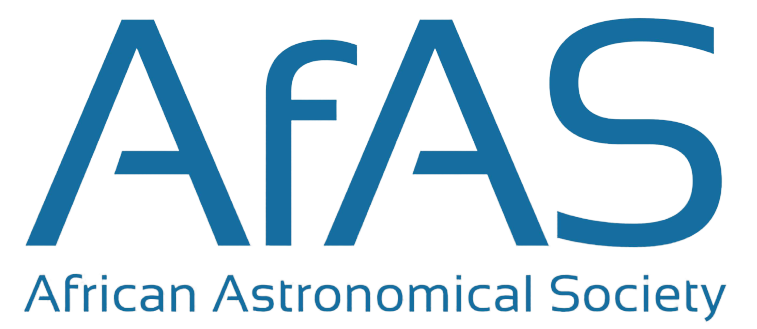 The call for a Pan-African professional society of astronomers goes back several years. In 2008 both Peter Martinez (South Africa) and Pius Okeke (Nigeria) published articles on ways to develop astronomy in Africa, the latter specifically calling for the formation of a Pan-African African Astronomical Society.
The call for a Pan-African professional society of astronomers goes back several years. In 2008 both Peter Martinez (South Africa) and Pius Okeke (Nigeria) published articles on ways to develop astronomy in Africa, the latter specifically calling for the formation of a Pan-African African Astronomical Society.
Regional professional astronomical societies had been formed in both West Africa and East Africa. Colleagues in North Africa also have organized professional astronomy organizations, and the history of astronomy in South Africa is well documented.
At the 2010 launch of the African Physical Society in Dakar a number of astronomers from throughout the continent and the African diaspora resolved to form the African Astronomical Society in much the same manner as the African Physical Society was being formed.
In Ouagadougou the Interim Working Group agreed upon a structure and constitution for the African Astronomical Society (AfAS). Jacob Ashong of Ghana was charged with officially registering the society under the laws of the Republic of Ghana, a task he completed in January 2011.
The Ouagadougou meeting is historic in that it marks the official formation of the AfAS in addition to being the first IAU Symposium ever in West Africa. It was in part made possible through the generous support of UNESCO, Swedens International Science Progamme and the National Society of Black Physicists.
The AfAS was ceremoniously launched at the 2nd Mideast Africa Regional IAU Meeting in Cape Town, South Africa in April 2011.
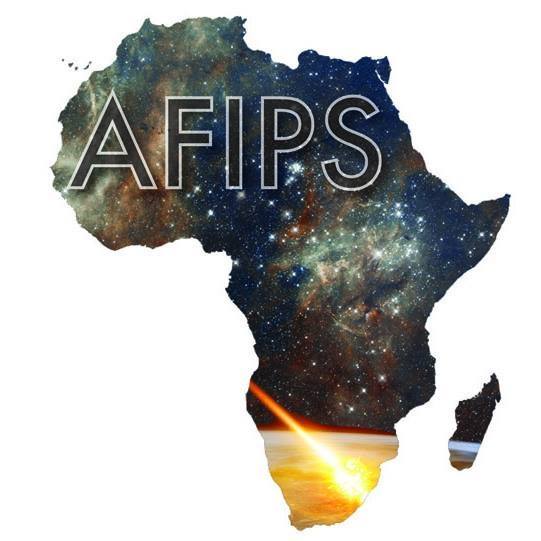 The objective of the Africa Initiative for Planetary and Space Sciences is to:
The objective of the Africa Initiative for Planetary and Space Sciences is to:
– Connect African Planetary and Space Scientists with their international peers, by facilitating cross-border collaborations while overcoming traditional language barriers,
– Build a road map for Planetary and Space Sciences in Africa, by identifying key research areas where African scientists can make significant contributions,
– Solicit sponsors to support the development of this research domain in Africa,
– Contribute to sustainable development in Africa through research, education, and public outreach in Planetary and Space sciences.
The initiative is conceived as a network of projects, independently funded, and run by team composed of Africa-based scientists and other partners. The affiliation of projects to the AFIPS network is on a voluntary basis.
The AFIPS structure includes a Steering Committee, a Scientific Advisory Committee and an Education and Outreach Committee. The members of these different committee are committed to the Development of Planetary and Space Sciences in Africa.
Advanced light sources are the most transformational scientific facilities currently known, impacting fields from anthropology, biophysics, and chemistry, to Earth sciences, engineering, medicine, paleontology, physics, materials science, vaccinology, and zoology. Investments in big science facilities are positively related to increasing national economic outputs, increasing efficiencies, greater attractiveness for investments –domestic and foreign, improvement in training and job opportunities, reduction of disease burdens, and ultimately increases in quality of life.
An advanced light source in Africa is vital if African governments and civil society are to achieve the Sustainable Development Goals.
As advanced light sources support multiple disciplines, the AfLS conference formally includes participation by the following Pan African scientific societies, which we are proud to count as supporters and partners in our vision towards an African light source.


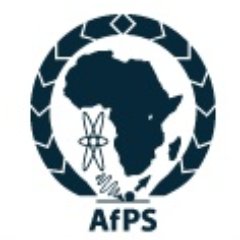 The African Physical Society is a non-governmental professional association legally incorporated under the laws of the Republic of Ghana, along with the African Association of Physics Students as a subsidiary organization.
The African Physical Society is a non-governmental professional association legally incorporated under the laws of the Republic of Ghana, along with the African Association of Physics Students as a subsidiary organization.
It provides a forum to bring together for the purposes of networking, collaboration, and advocacy, all the existing national physical societies, e.g., the Ghana Institute of Physics, Cameroon Physical Society, South African Institute of Physics, Kenya Physical Society. In addition to supporting the existing societies, the African Physical Society endeavors to support and represent physicists and physics students working and studying in countries that do not have a national physical society. It hopes to catalyze the creation of more national physical societies. As an advocate for physics across the continent, the African Physical Society endeavors to increase the resources for physics training and research in Africa, and the economic and social development that follows.
Likewise the purpose of the African Association of Physics Students is to encourage physics students in their scientific and professional work in an African and an international context as well as to promote relations between physics students from all over the world.
The African Physical Society and the African Association of Physics Students are therefore organizations in which all African physicists and physics students can be members, independent of their field of research or country of work or origin. They endeavor to represent the interests of all African physicists and physics students in matters that have a continent-wide and world-wide impact.
 The Federation of African Societies of Biochemistry and Molecular Biology (FASBMB) aims to bring together African biochemists/molecular biologists through their national associations.During the founding of the Federation in 1996 in Nairobi, Professor Makawiti, in his welcome speech said, "this conference comes at a time when resources for scientific research are becoming extremely scarce, personnel training and equipment for institutional research capacity building prohibitively expensive". Therefore, the task for the Federation must be to move to find solutions to the problem of diminishing research and training resources.
The Federation of African Societies of Biochemistry and Molecular Biology (FASBMB) aims to bring together African biochemists/molecular biologists through their national associations.During the founding of the Federation in 1996 in Nairobi, Professor Makawiti, in his welcome speech said, "this conference comes at a time when resources for scientific research are becoming extremely scarce, personnel training and equipment for institutional research capacity building prohibitively expensive". Therefore, the task for the Federation must be to move to find solutions to the problem of diminishing research and training resources.
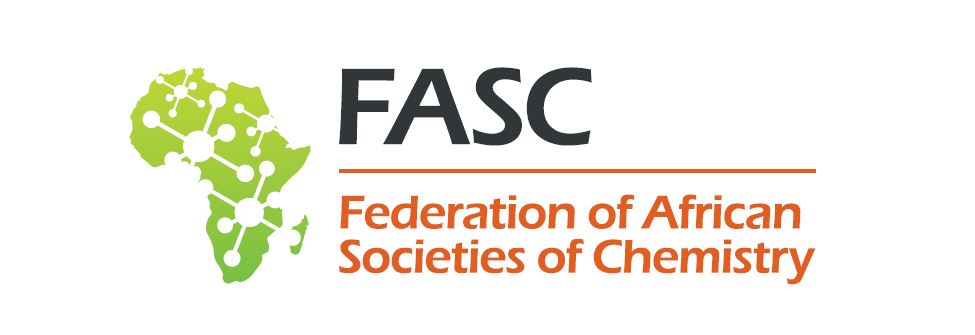 The Federation of African Societies of Chemistry (FASC) was established on 23 February 2006 in Addis Ababa, Ethiopia. The founding ceremony was attended by representatives of a) African chemical societies such as the Chemical Societies of Ethiopia, Egypt, Nigeria, South Africa, Tunisia and African Association of Pure and Applied Chemistry, b) IUPAC, c) RSC, d) members of the Executive Committee of the Chemical Society of Ethiopia (CSE), e) members of the Organizing Committee of the 22nd Annual Congress of CSE and the founding of FASC, f) former presidents of CSE, heads of Chemistry Departments in Ethiopian universities, sponsors of the FASC-founding meetings and invited guests.
The Federation of African Societies of Chemistry (FASC) was established on 23 February 2006 in Addis Ababa, Ethiopia. The founding ceremony was attended by representatives of a) African chemical societies such as the Chemical Societies of Ethiopia, Egypt, Nigeria, South Africa, Tunisia and African Association of Pure and Applied Chemistry, b) IUPAC, c) RSC, d) members of the Executive Committee of the Chemical Society of Ethiopia (CSE), e) members of the Organizing Committee of the 22nd Annual Congress of CSE and the founding of FASC, f) former presidents of CSE, heads of Chemistry Departments in Ethiopian universities, sponsors of the FASC-founding meetings and invited guests.
FASC aims at promoting the advancement of chemical sciences and the practice of chemistry that could be instrumental to the fulfillment of the development aspiration and objective of the people in Africa. More specifically, FASC is established:
- to promote and maintain effective communication throughout the community of chemists and chemical scientists in Africa.
- to promote collaborative activity among member societies and among the individual members of these societies.
- to maintain and promote high professional, educational and ethical standards.
- to disseminate chemical knowledge.
- to act in an advisory, consultative and representative capacity in relation to African institutions and regional initiatives.
- to promote cooperation with other international organizations and similar regional and international networks.
FASC seeks to achieve its aim primarily through networking African chemical societies among themselves and with sister international and regional societies, as well as with international and regional initiatives that aim at the promotion of sustainable development in Africa.
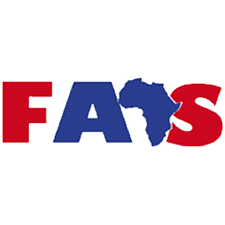
The Federation of African Immunological Societies (FAIS) is a regional federation of immunology societies in and from Africa. The FAIS exists within the framework of the International Union of Immunological Societies (IUIS), to which it is affiliated, under Article 2.1.2 of the IUIS constitution.
FAIS' objectives include the following:
-
Closer Contact
To encourage and promote closer contact and interaction between
immunologists on the African continent.
-
Support
To encourage and support educational/training programs that
will improve the quality of immunological research, teaching and
practice in Africa.
-
Advocate
To advocate for the field of immunology in Africa.
-
Complement
To complement, and not compete or conflict with, objectives and
activities of other similar organisations on the African
continent.
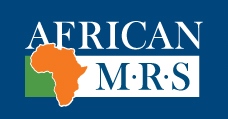 The formation of the AMRS, has its origins in the August 2000 ‘US-Africa Materials Workshop’, held in Pretoria, South Africa. The workshop was co-organized and sponsored by the United States National Science Foundation (NSF) and the South African National Research Foundation (NRF) and sought to explore opportunities for collaboration between the USA and Africa with an overarching objective of developing the materials research capacity in Africa. It brought together over 70 leading scientists, industry researchers and Government representatives from the USA and 15 African countries, and they sculpted a forward-looking sustainable framework for driving materials research in Africa. Two years later, building on this initiative, on 12 December, 2002, the African-MRS was officially launched in Dakar, Senegal.
The formation of the AMRS, has its origins in the August 2000 ‘US-Africa Materials Workshop’, held in Pretoria, South Africa. The workshop was co-organized and sponsored by the United States National Science Foundation (NSF) and the South African National Research Foundation (NRF) and sought to explore opportunities for collaboration between the USA and Africa with an overarching objective of developing the materials research capacity in Africa. It brought together over 70 leading scientists, industry researchers and Government representatives from the USA and 15 African countries, and they sculpted a forward-looking sustainable framework for driving materials research in Africa. Two years later, building on this initiative, on 12 December, 2002, the African-MRS was officially launched in Dakar, Senegal.
The Dakar meeting, was attended by various world experts in the different facets of materials science, engineering and research, thus becoming the 1st AMRS International Conference. Subsequent biennial International Conferences were held in South Africa (2003), Morocco (2005), Tanzania (2007), Nigeria (2009) Zimbabwe, (2011), Ethiopia (2013), Ghana (2015), Botswana (2017), Tanzania(2019) and will be in Senegal (2022) and Rwanda (2024).
In December 2017 Botswana was appointed Home of the African Materials Research Society secretariat which is currently Hosted by Botswana Institute for Technology Research and Innovation (BITRI) .
 The Federation of African Medical Physics Organizations (FAMPO) is the regional federation of the International Organization for Medical Physics (IOMP) in Africa. FAMPO is a non-profit-making organization established in March 2009 to promote the application of physics in medicine.
The Federation of African Medical Physics Organizations (FAMPO) is the regional federation of the International Organization for Medical Physics (IOMP) in Africa. FAMPO is a non-profit-making organization established in March 2009 to promote the application of physics in medicine.
We raise and maintain standards. We partner with organizations and academia, promoting collaboration and innovation. And we promote the talent, information and ideas that lead to great advances in medical application of radiation.
It is our privilege that the Federation of African Medical Physicists are part of the global community of IOMP.
FAMPO has over 400 members in 9 countries. Its vision and purpose includes
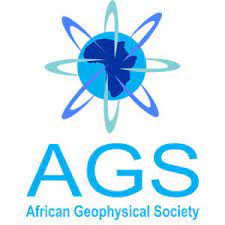 African Geophysical Society is a dynamic, innovative, and interdisciplinary scientific association committed to the pursuit of understanding of Earth and Space for the benefit of mankind. AGS mainly focuses on the expansion and strengthening of the study of the Earth and other planets including their environments in African continent; facilitating cooperation among scientists, national, regional and international scientific organizations, which are involved in geophysical and other related research; initiations of, as well as participations in, new research and training programs; popularizations of various geophysical research and training programs in African continent via scientific conferences, publications and trainings – short and long terms.
African Geophysical Society is a dynamic, innovative, and interdisciplinary scientific association committed to the pursuit of understanding of Earth and Space for the benefit of mankind. AGS mainly focuses on the expansion and strengthening of the study of the Earth and other planets including their environments in African continent; facilitating cooperation among scientists, national, regional and international scientific organizations, which are involved in geophysical and other related research; initiations of, as well as participations in, new research and training programs; popularizations of various geophysical research and training programs in African continent via scientific conferences, publications and trainings – short and long terms.
AGS strategies include organize annual General Assemblies; organize, sponsor or co-sponsor appropriate workshops, scientific meetings, topical conferences, short courses, summer schools, etc. outside General Assemblies, including those organized by other bodies; publish a Newsletter; publish appropriate scientific journals and books on all media, in particular, online and free-access; undertake outreach activities, which should include: identifying and drawing attention to social problems which could be addressed by the scientific work of its members and communication with the non-scientific public; establish links which would allow influence to be brought to bear on decision-makers in Africa and elsewhere; establish liaisons with other scientific organizations, both within and outside Africa, to mutual benefit; encourage participation of young scientists in the affairs of the Union through concessionary fees and a limited number of travel awards to assist attendance at General Assemblies; forge a strong partnership with other international geophysical communities such as IUGG, AGU, AOGS, and EGU.
The fields of relevance to African Geophysical Society
are
S Solid Earth Science (geology, geodesy, geophysics, geochemistry, biogeosciences)
A Atmospheric Science (Small scale and local wind systems, air pollution, mesoscale processes, global wind systems, cyclones, weather forecasting, atmospheric chemistry, global climate and its change, meteorology)
O Ocean Science (Estuarine and costal oceanography, ocean circulation, marine biogeochemistry, paleoceanography, marine geology, and atmosphere-ocean coupling.
PA Astronomy and Planetary Science (interior, surface, magnetosphere, ionosphere, and upper atmosphere of solar system bodies other than earth, cosmology)
ST Solar and Terrestrial (sun, interplanetary medium, heliosphere, the magnetosphere, ionosphere, and upper atmosphere of planet earth, space weather)
H Hydrological Science (Hydrometeorology, Surface Water Hydrology, Ground Water Hydrology,Water Resources Planning and Management, Hydroinformatics)
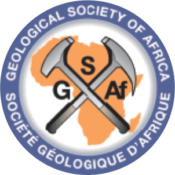 The Geological Society of Africa (GSAf) was established in 1973 to encourage geoscientific collaboration and cooperation across the continent.
The Geological Society of Africa (GSAf) was established in 1973 to encourage geoscientific collaboration and cooperation across the continent.
Its main objectives are:
- to promote understanding of the Earth sciences and improve standards of Earth science education and research in Africa;
- to provide a forum for discussion and dissemination of information across national boundaries between scientists, associations and institutions engaged in African geology and earth resources;
- to promote the development and sustainable management of the continent’s earth resources, to advance its socio-economic development; and
- to improve natural hazards assessment and disaster mitigation.
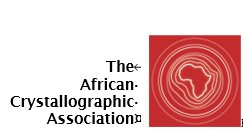 Africa had its first Pan-African Crystallography conference in Dschang, Cameroon in 2016, followed by one in Accra, Ghana in 2019. The 2023 meeting is set to be in Nairobi, Kenya. The African Crystallographic Association (AfCA) was officially launched at the 2021 joint conference of the African Light Source, African Physical Society, and Pan-African Conference on Crystallography. AfCA will have its first conference in Nairobi, Kenya in January 2023.
Africa had its first Pan-African Crystallography conference in Dschang, Cameroon in 2016, followed by one in Accra, Ghana in 2019. The 2023 meeting is set to be in Nairobi, Kenya. The African Crystallographic Association (AfCA) was officially launched at the 2021 joint conference of the African Light Source, African Physical Society, and Pan-African Conference on Crystallography. AfCA will have its first conference in Nairobi, Kenya in January 2023.
The mission of the African Crystallographic Association is to contribute to the advancement of science on the African continent via crystallography in all its aspects, including related topics concerning the structure and related properties of non-crystalline states, and to promote African cooperation in crystallography. It is aimed at bringing together scientists from all over Africa and at implementing educational and research activities in the continent.
The objectives of the Association are as follows: to contribute to the advancement of crystallography and structural science in all its aspects, including related topics concerning non-crystalline statest o promote African cooperation in crystallography and related areasto contribute to the development of education and research in crystallography and structural sciences in Africa.
The AfCA plans to realize its mission via the following actions:
- Create a network of African crystallographers and assist in creating a database listing African crystallographers, and ensure the registration of African Crystallographers in the IUCr World Directory of Crystallographers (WDC);
- Facilitate the establishment of National Associations of Crystallography in African countries, or groups of local crystallographers on the continent, and support the activities of the existing associations;
- Support the application of AfCA to become a regional member of IUCr;
- Organize the Pan African Conference on Crystallography (PCCr) every two years to enable interaction, discussion and sharing of results in the community;
- Establish a public awareness and engagement program that will create fact-based understanding of crystallography through awareness, dialogue and education in the region;
- Support training activities: OpenLabs, Pan African Crystallography Schools, crystal growth competitions and so on, on the African continent;
- Assist in the promotion of crystallography and science in education programs;
- Help to acquire diffraction equipment for crystallographers firstly in one country in each of the five regions of the continent (Central Africa, West Africa, North Africa, Southern Africa and East Africa) to allow research activity in crystallography and balanced partnership collaboration across Africa and beyond; and ultimately in all the countries of Africa;
- Assist in providing the very poorest countries with minimal infrastructure and materials for research such as powerful computers for data analysis and servers;
- Encourage the mobility of researchers within the region for experiments; promote joint research projects across Africa;
- Leverage national bodies, institutions and international funding agencies for financial support;
- Facilitate (with the involvement of IUCr and UNESCO and the African governments) the establishment of an African IUCr Cooperation Fund to support the above actions;
- Lobby for the introduction of a scientific visa to ensure mobility of researchers between African nations, thus allowing for exchange and collaboration between African countries and the sharing of scientific resources and expertise to address common developmental targets, for the benefit of all. This scientific visa should be free of charge, be valid for at least a year, and should be issued quickly once certified by appropriate higher education and research bodies.
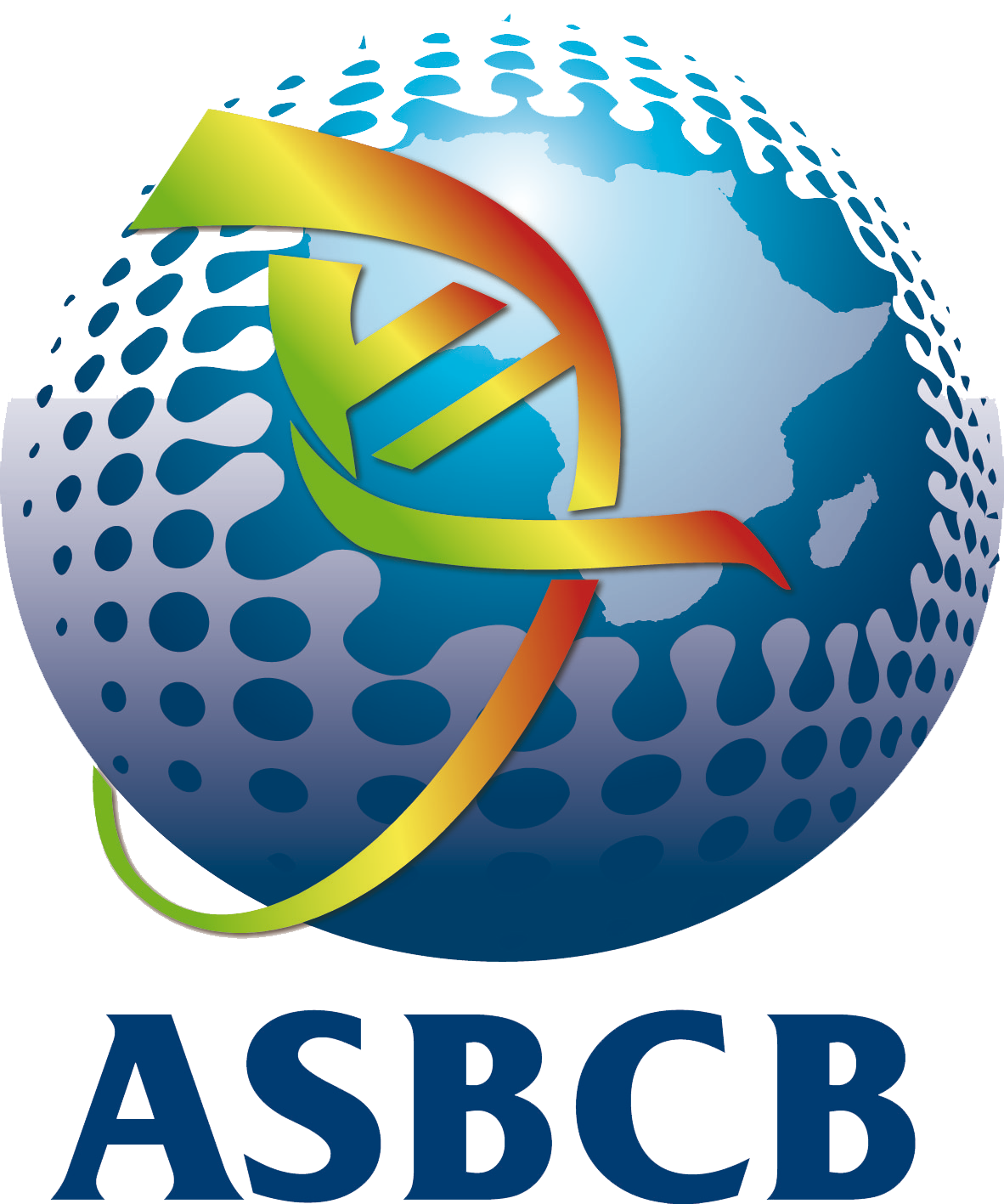 Stemming from the African Bioinformatics Network (ABioNET), as a result of a WHO sponsored meeting at the South African National Bioinformatics Institute in Cape Town, South Africa on the 13th February 2004, the African Society for Bioinformatics and Computational Biology (ASBCB) is a non-profit professional association dedicated to the advancement of bioinformatics and computational biology with a mission to develop the application of bioinformatics in Africa.
Stemming from the African Bioinformatics Network (ABioNET), as a result of a WHO sponsored meeting at the South African National Bioinformatics Institute in Cape Town, South Africa on the 13th February 2004, the African Society for Bioinformatics and Computational Biology (ASBCB) is a non-profit professional association dedicated to the advancement of bioinformatics and computational biology with a mission to develop the application of bioinformatics in Africa.
The society serves as an international forum and resource devoted to developing competence and expertise in bioinformatics and computational biology. It complements its activities with those of other international and national societies, associations and institutions, public and private, that have similar aims. It also promotes the standing of African bioinformatics and computational biology in the global arena through liaison and cooperation with other international bodies.
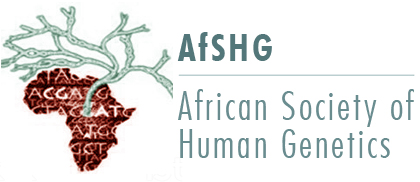 The AfSHG was founded in 2003 with the aim of equipping the African scientific community and policy-makers with information and practical knowledge to contribute to the field of genomics research and to attract global attention to the efforts of African scientists.
The AfSHG was founded in 2003 with the aim of equipping the African scientific community and policy-makers with information and practical knowledge to contribute to the field of genomics research and to attract global attention to the efforts of African scientists.
A major objective of the society is to provide a forum for scientists in the broad enterprise of human genetics and genomics in Africa to meet, interact, network and collaborate. By achieving these goals, members of the AfSHG hope to bring attention to and help to facilitate the development of solutions to the huge public health burden of many rare and common diseases across the continent. It is indeed gratifying that the AfSHG and its members have successfully addressed some challenges while pushing forward with new strategies to address others. Since its inaugural meeting, in Accra (Ghana) with the theme ‘Biomedical Research in Africa with Emphasis on Genetics’, the AfSHG is providing opportunities for networking and collaboration among professionals working on genetic and genomic issues relevant to Africa.
As the cradle of humankind, Africa has the broadest spectrum of human genetic variation. The African Society of Human Genetics (AfSHG) was formed in 2003 to foster genetics research in Africa to generate knowledge for the prevention of disease and the promotion of health. To meet this mission the society’s goals are to:
- Expand genetic and genomic research in Africa, to include all regions of the continent
- Integrate the work of the African Society of Human Genetics with the activities of other related societies
- Increase avenues of inter- and intra-continental collaboration in human genetics research
- Increase awareness of human genetics and genomic research and promote the development of effective public policy regarding this research in Africa
- Promote the translation of genetic knowledge into clinical practice throughout Africa
 Professional societies play a key role in promoting the development of science, technology and education among other things. In view of this, the Ethiopian Physical Society (EPS) was founded on October 10, 1998 by Ethiopian physics professionals to enhance physics research and education, thereby contributing its share to the overall development of the country.
Professional societies play a key role in promoting the development of science, technology and education among other things. In view of this, the Ethiopian Physical Society (EPS) was founded on October 10, 1998 by Ethiopian physics professionals to enhance physics research and education, thereby contributing its share to the overall development of the country.
- The objectives of EPS are:
- To promote physics education and research in the country;
- To organize and coordinate various conferences on physics education and exchange of scientific information;
- To popularize physics in order to make students develop interest in physics;
- To promote active participation of Ethiopian physicists and the general public in the design and implementation of the physics curriculum;
- To create a means for disseminating scientific information; etc. ...

Whereas a significant role Ethiopian physics professionals in North America can play in advancing physics education and research in Ethiopia an Ethiopian Physics Society in North America was established in 2008.
Its mission includes promoting physics education and research among Ethiopians in Ethiopia and North America, including specifically the following:
- To promote and support the education and training of Ethiopian Physics professionals by donating educational materials, field equipment, computing facilities, and other necessary resources.
- To promote and support the training of Ethiopian Physics professionals by providing scholarship, financial and mentoring assistance to Ethiopian students and educators.
- To inform Ethiopian students of career and scholarship opportunities that may exist in the physical sciences.
- To organize conferences and workshops on all aspects of physics in Ethiopia.
- To sponsor educational programs and to undertake coordinated research in Ethiopia.
- To provide a networking platform for Ethiopian physics professionals.
- To act as a liaison between members of this organization and other physical science organizations.
- To create or facilitate collaboration among universities in Ethiopia and North America.
- To organize and teach short courses in Ethiopia.
 The FAEO is an international non-governmental organisation which represents the interests of all engineering practitioners in Africa, most notably at the World Federation of Engineering Organisations (WFEO). The first General Assembly (GA) of African Engineering Organisations was held in Nairobi, Kenya in April, 2012. The mission and vision of FAEO includes the following:
The FAEO is an international non-governmental organisation which represents the interests of all engineering practitioners in Africa, most notably at the World Federation of Engineering Organisations (WFEO). The first General Assembly (GA) of African Engineering Organisations was held in Nairobi, Kenya in April, 2012. The mission and vision of FAEO includes the following:
-
To be the leading engineering professional body offering sustainable development solutions for the benefit of humankind in Africa.
-
To serve humanity through the use of best practiced technology. To represent the engineering profession in Africa, internationally.
- To be recognized by international organisations as the overall leader of the engineering profession in Africa and sets out to apply engineering for the benefit of mankind.
-
To promote and advance the science and practice of engineering for the benefit of society in Africa and globally.
 The call for a Pan-African professional society of astronomers goes back several years. In 2008 both Peter Martinez (South Africa) and Pius Okeke (Nigeria) published articles on ways to develop astronomy in Africa, the latter specifically calling for the formation of a Pan-African African Astronomical Society.
The call for a Pan-African professional society of astronomers goes back several years. In 2008 both Peter Martinez (South Africa) and Pius Okeke (Nigeria) published articles on ways to develop astronomy in Africa, the latter specifically calling for the formation of a Pan-African African Astronomical Society. The objective of the Africa Initiative for Planetary and Space Sciences is to:
The objective of the Africa Initiative for Planetary and Space Sciences is to:

 The African Physical Society is a non-governmental professional association legally incorporated under the laws of the Republic of Ghana, along with the African Association of Physics Students as a subsidiary organization.
The African Physical Society is a non-governmental professional association legally incorporated under the laws of the Republic of Ghana, along with the African Association of Physics Students as a subsidiary organization. The Federation of African Societies of Biochemistry and Molecular Biology (FASBMB) aims to bring together African biochemists/molecular biologists through their national associations.During the founding of the Federation in 1996 in Nairobi, Professor Makawiti, in his welcome speech said, "this conference comes at a time when resources for scientific research are becoming extremely scarce, personnel training and equipment for institutional research capacity building prohibitively expensive". Therefore, the task for the Federation must be to move to find solutions to the problem of diminishing research and training resources.
The Federation of African Societies of Biochemistry and Molecular Biology (FASBMB) aims to bring together African biochemists/molecular biologists through their national associations.During the founding of the Federation in 1996 in Nairobi, Professor Makawiti, in his welcome speech said, "this conference comes at a time when resources for scientific research are becoming extremely scarce, personnel training and equipment for institutional research capacity building prohibitively expensive". Therefore, the task for the Federation must be to move to find solutions to the problem of diminishing research and training resources.

 The formation of the AMRS, has its origins in the August 2000 ‘US-Africa Materials Workshop’, held in Pretoria, South Africa. The workshop was co-organized and sponsored by the United States National Science Foundation (NSF) and the South African National Research Foundation (NRF) and sought to explore opportunities for collaboration between the USA and Africa with an overarching objective of developing the materials research capacity in Africa. It brought together over 70 leading scientists, industry researchers and Government representatives from the USA and 15 African countries, and they sculpted a forward-looking sustainable framework for driving materials research in Africa. Two years later, building on this initiative, on 12 December, 2002, the African-MRS was officially launched in Dakar, Senegal.
The formation of the AMRS, has its origins in the August 2000 ‘US-Africa Materials Workshop’, held in Pretoria, South Africa. The workshop was co-organized and sponsored by the United States National Science Foundation (NSF) and the South African National Research Foundation (NRF) and sought to explore opportunities for collaboration between the USA and Africa with an overarching objective of developing the materials research capacity in Africa. It brought together over 70 leading scientists, industry researchers and Government representatives from the USA and 15 African countries, and they sculpted a forward-looking sustainable framework for driving materials research in Africa. Two years later, building on this initiative, on 12 December, 2002, the African-MRS was officially launched in Dakar, Senegal.  The Federation of African Medical Physics Organizations (FAMPO) is the regional federation of the International Organization for Medical Physics (IOMP) in Africa. FAMPO is a non-profit-making organization established in March 2009 to promote the application of physics in medicine.
The Federation of African Medical Physics Organizations (FAMPO) is the regional federation of the International Organization for Medical Physics (IOMP) in Africa. FAMPO is a non-profit-making organization established in March 2009 to promote the application of physics in medicine. African Geophysical Society is a dynamic, innovative, and interdisciplinary scientific association committed to the pursuit of understanding of Earth and Space for the benefit of mankind. AGS mainly focuses on the expansion and strengthening of the study of the Earth and other planets including their environments in African continent; facilitating cooperation among scientists, national, regional and international scientific organizations, which are involved in geophysical and other related research; initiations of, as well as participations in, new research and training programs; popularizations of various geophysical research and training programs in African continent via scientific conferences, publications and trainings – short and long terms.
African Geophysical Society is a dynamic, innovative, and interdisciplinary scientific association committed to the pursuit of understanding of Earth and Space for the benefit of mankind. AGS mainly focuses on the expansion and strengthening of the study of the Earth and other planets including their environments in African continent; facilitating cooperation among scientists, national, regional and international scientific organizations, which are involved in geophysical and other related research; initiations of, as well as participations in, new research and training programs; popularizations of various geophysical research and training programs in African continent via scientific conferences, publications and trainings – short and long terms. The Geological Society of Africa (GSAf) was established in 1973 to encourage geoscientific collaboration and cooperation across the continent.
The Geological Society of Africa (GSAf) was established in 1973 to encourage geoscientific collaboration and cooperation across the continent. Africa had its first Pan-African Crystallography conference in Dschang, Cameroon in 2016, followed by one in Accra, Ghana in 2019. The 2023 meeting is set to be in Nairobi, Kenya. The African Crystallographic Association (AfCA) was officially launched at the 2021 joint conference of the African Light Source, African Physical Society, and Pan-African Conference on Crystallography. AfCA will have its first conference in Nairobi, Kenya in January 2023.
Africa had its first Pan-African Crystallography conference in Dschang, Cameroon in 2016, followed by one in Accra, Ghana in 2019. The 2023 meeting is set to be in Nairobi, Kenya. The African Crystallographic Association (AfCA) was officially launched at the 2021 joint conference of the African Light Source, African Physical Society, and Pan-African Conference on Crystallography. AfCA will have its first conference in Nairobi, Kenya in January 2023. Stemming from the African Bioinformatics Network (ABioNET), as a result of a WHO sponsored meeting at the South African National Bioinformatics Institute in Cape Town, South Africa on the 13th February 2004, the African Society for Bioinformatics and Computational Biology (ASBCB) is a non-profit professional association dedicated to the advancement of bioinformatics and computational biology with a mission to develop the application of bioinformatics in Africa.
Stemming from the African Bioinformatics Network (ABioNET), as a result of a WHO sponsored meeting at the South African National Bioinformatics Institute in Cape Town, South Africa on the 13th February 2004, the African Society for Bioinformatics and Computational Biology (ASBCB) is a non-profit professional association dedicated to the advancement of bioinformatics and computational biology with a mission to develop the application of bioinformatics in Africa. The AfSHG was founded in 2003 with the aim of equipping the African scientific community and policy-makers with information and practical knowledge to contribute to the field of genomics research and to attract global attention to the efforts of African scientists.
The AfSHG was founded in 2003 with the aim of equipping the African scientific community and policy-makers with information and practical knowledge to contribute to the field of genomics research and to attract global attention to the efforts of African scientists. Professional societies play a key role in promoting the development of science, technology and education among other things. In view of this, the Ethiopian Physical Society (EPS) was founded on October 10, 1998 by Ethiopian physics professionals to enhance physics research and education, thereby contributing its share to the overall development of the country.
Professional societies play a key role in promoting the development of science, technology and education among other things. In view of this, the Ethiopian Physical Society (EPS) was founded on October 10, 1998 by Ethiopian physics professionals to enhance physics research and education, thereby contributing its share to the overall development of the country. 
 The FAEO is an international non-governmental organisation which represents the interests of all engineering practitioners in Africa, most notably at the World Federation of Engineering Organisations (WFEO). The first General Assembly (GA) of African Engineering Organisations was held in Nairobi, Kenya in April, 2012. The mission and vision of FAEO includes the following:
The FAEO is an international non-governmental organisation which represents the interests of all engineering practitioners in Africa, most notably at the World Federation of Engineering Organisations (WFEO). The first General Assembly (GA) of African Engineering Organisations was held in Nairobi, Kenya in April, 2012. The mission and vision of FAEO includes the following: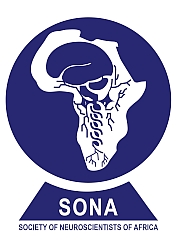 The Society of Neuroscientists of Africa (SONA) is the umbrella organisation for the regional and national neuroscience societies and groups in Africa, and an affiliate of the International Brain Research Organisation (IBRO). The Society’s mandate is to advocate for neuroscience research and teaching in Africa and host an international conference every two years. 16th International Conference of the Society of Neuroscientists of Africa (SONA) 2023, Johannesburg, South Africa 11-14 July 2023. The Brain in Health and Disease: From Basic to Translational and Clinical Neurosciences.
The Society of Neuroscientists of Africa (SONA) is the umbrella organisation for the regional and national neuroscience societies and groups in Africa, and an affiliate of the International Brain Research Organisation (IBRO). The Society’s mandate is to advocate for neuroscience research and teaching in Africa and host an international conference every two years. 16th International Conference of the Society of Neuroscientists of Africa (SONA) 2023, Johannesburg, South Africa 11-14 July 2023. The Brain in Health and Disease: From Basic to Translational and Clinical Neurosciences.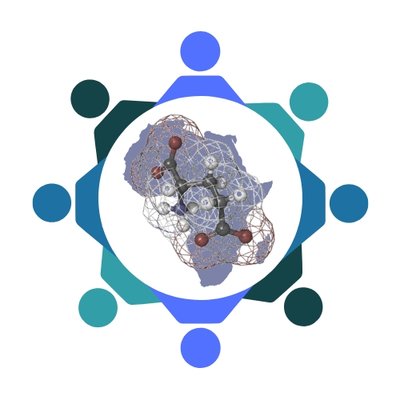 BioStruct-Africa's mission is to empower Africa-based scientists and bridge technology gaps through knowledge transfer and mentoring in cutting-edge techniques in structural biology. BioStruct-Africa achieves this by organizing workshops onsite at our partner universities and institutions based in Africa, followed by post-hoc online mentoring of participants to ensure sustainable capacity building.
BioStruct-Africa's mission is to empower Africa-based scientists and bridge technology gaps through knowledge transfer and mentoring in cutting-edge techniques in structural biology. BioStruct-Africa achieves this by organizing workshops onsite at our partner universities and institutions based in Africa, followed by post-hoc online mentoring of participants to ensure sustainable capacity building. 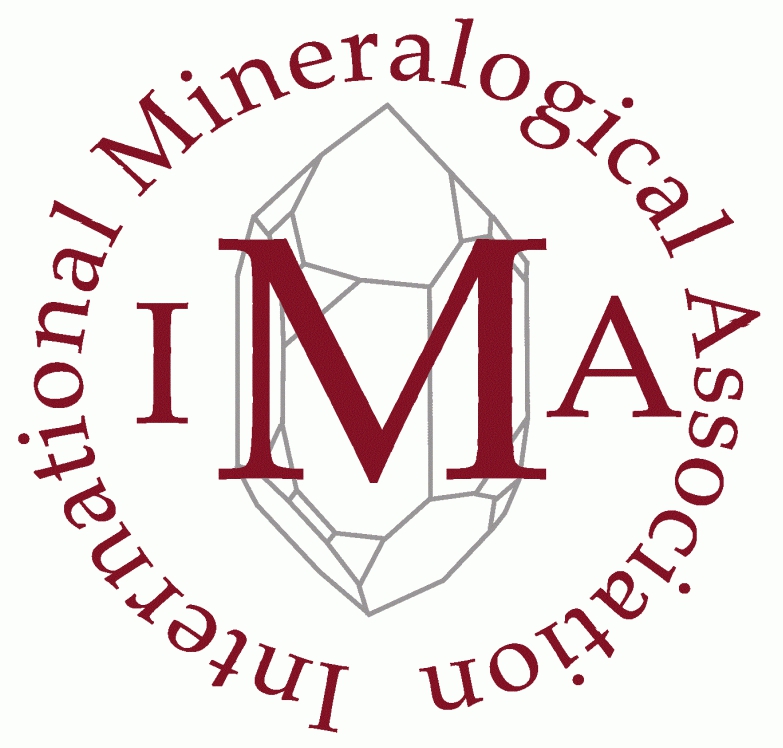 Founded in 1958, the International Mineralogical Association is an international group of 40 national societies, including the Mineralogical Association of South Africa, the Mineralogical Society of America. IMA's goal is to promote the science of mineralogy and to standardize the nomenclature of the 5000 plus known mineral species.
Founded in 1958, the International Mineralogical Association is an international group of 40 national societies, including the Mineralogical Association of South Africa, the Mineralogical Society of America. IMA's goal is to promote the science of mineralogy and to standardize the nomenclature of the 5000 plus known mineral species. 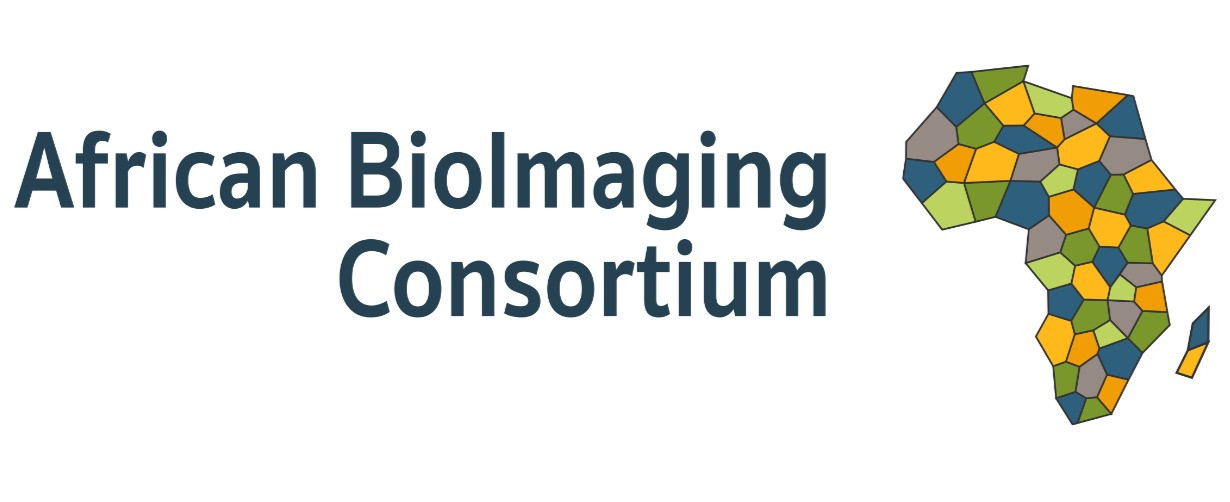 The African Bioimaging Consortium (ABIC) is a newly established network of life science researchers throughout Africa with an interest in and use for microscopy. This community-driven initiative aims to unite the African microscopy community and support the development of bioimaging across the continent.
The African Bioimaging Consortium (ABIC) is a newly established network of life science researchers throughout Africa with an interest in and use for microscopy. This community-driven initiative aims to unite the African microscopy community and support the development of bioimaging across the continent.